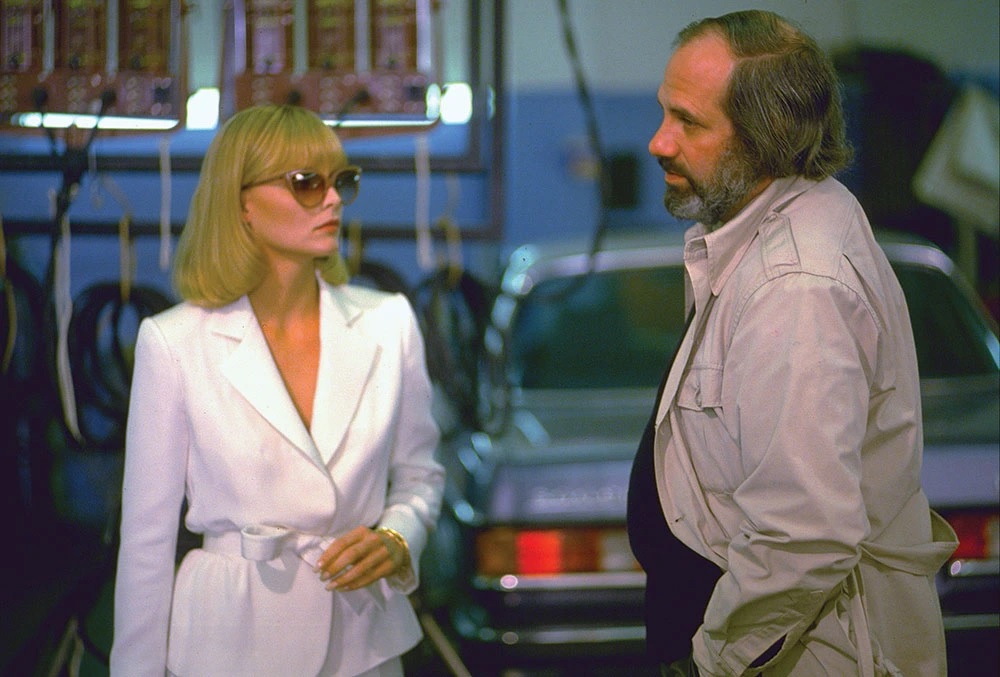CREDITS HER FIRST HUSBAND, PETER HORTON, FOR PROVIDING MORAL SUPPORT AS SHE WORKED WITH "INCREDIBLY SEASONED ACTORS"

In a profile article by Lacey Rose posted today at The Hollywood Reporter, Michelle Pfeiffer recalls working on Scarface early in her career:
Pfeiffer’s introduction to the darker side of Hollywood came a few years later, when she fell under the spell of a controlling L.A. couple. She was young and desperately seeking answers, and the pair seemed to have all of them. “There was a lot of mind-fucking and brainwashing,” she says, and a lot of money handed over to them, too. It was her future husband, Peter Horton, who finally extricated her. He was prepping for a movie about cults, and asked Pfeiffer to join him for a meeting with a real-life deprogrammer. There she was, listening to them talk about the psychological manipulation that goes on, when it clicked: “I’m like, ‘Oh my God, I’m in a cult.’ It was like a light bulb went off, and I never went back.”She married Horton in 1981, and landed her first big break, as Stephanie Zinone in Grease 2, while they were on their honeymoon. The marriage lasted less than a decade, but Pfeiffer still credits the Thirtysomething star for believing in her long before she knew how. “And nobody ever writes about that, so feel free,” she tells me, and then provides examples, like the time she was considering some “sexy role” for TV, and he made her see that she was worthy of more. “I was doing my normal torture dance, whether or not I should do it, and he just read it and went, ‘I never really saw you this way, I always pictured you more like Katharine Hepburn.’ And it stuck,” says Pfeiffer. “I realized that I did, too, I just wasn’t confident enough to see that through.”
It was also Horton whom Pfeiffer continually turned to as she was struggling her way through her second major role, as coke-addled ice queen Elvira in Scarface. “I was with this group of incredibly seasoned actors and only one other woman, who I didn’t even work with, and I was just waiting to be fired the whole time,” she says. “I would go to bed every night crying.” Thirty-five years later, she appeared on a panel with director Brian De Palma and her co-star Al Pacino, where she was asked by a male moderator not about her performance but rather about her weight during the production — a question that was met with audible groans from the audience. “I mean, I was playing a cocaine addict!” she jokes now, though at the time she spoke candidly about “living off tomato soup and Marlboros.” When I tell her how impressed the internet seemed to be by her ability to gracefully shrug off the sexist query, she cocks her head and smiles: “I’ve had a lot of practice.”



